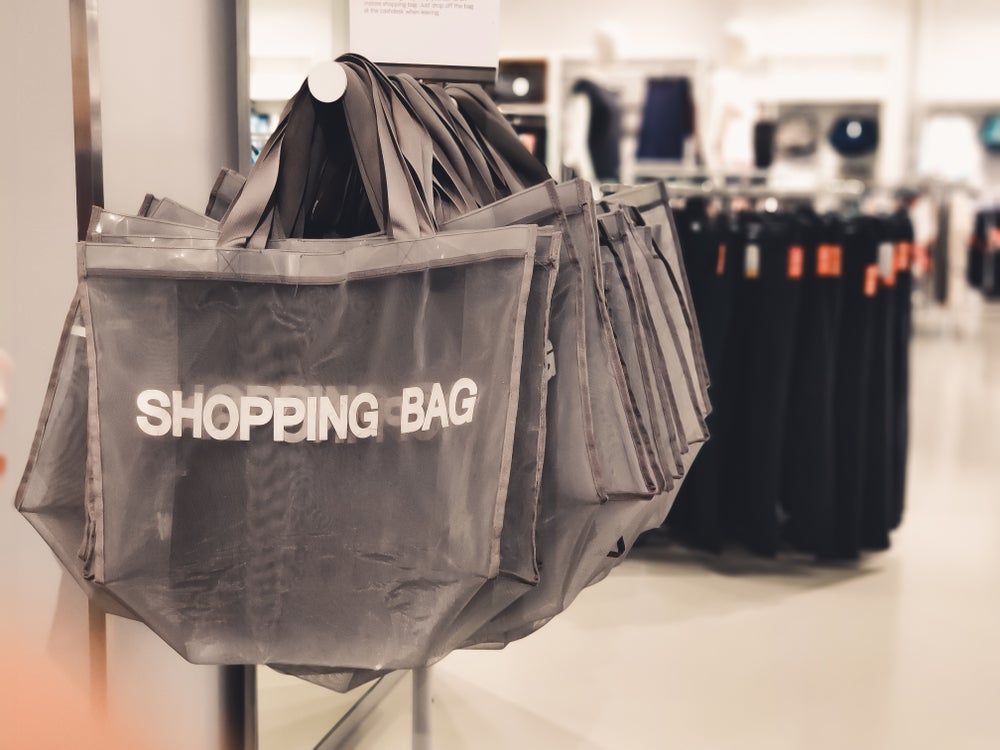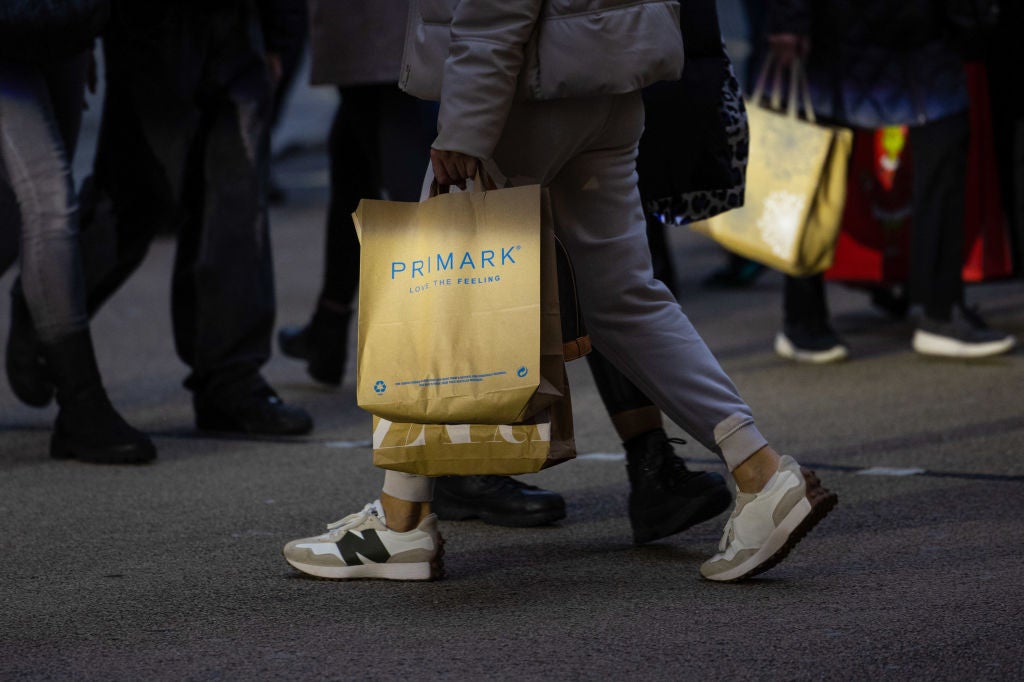
Apparel DECODED
Previous edition: 07 May 2024
Share article
Get the full version straight to your inbox.
Exclusive access to our best-in-class data & intelligence
Subscribe now
Explainer: Is France's proposed fast fashion tax a tariff by another name?
The proposed fast fashion law, which could be raised to €10 by 2030 and see a ban on advertisements for the most inexpensive fashion items, received unanimous support in France’s lower house in March and has been passed on to the Senate.

The funds raised by the fees would be used to make sustainable apparel more affordable for consumers and the brands impacted by the fee would be determined by “eco-scores” designed to reflect the impact of each product. If the law passes, brands would be required to display these scores online and in stores.
Why are French politicians targeting fast fashion?
Initially launched by conservative politician Antoine Vermorel-Marques, the proposed law could see France become the first country to legislate against the rise of fast fashion.
The law aims to make fast fashion brands less appealing to French consumers by increasing the price of products so they choose more sustainable alternatives or limit their apparel consumption.
The University of Delaware’s professor of fashion and apparel studies Dr Sheng Lu told Just Style: “It is not surprising to see more and more legislation proposed to address fast fashion, including this latest proposal from France.
Recent years have also seen increased debate about the processing of textile waste, with many apparel items unsuitable for recycling. Lu added: “Fast fashion retailers, typically known for selling a large quantity of clothing at a low price, contribute significantly to the millions of tons of textile waste problem facing the world.”
He also highlighted frequent questions about whether these brands and retailers “sufficiently and fairly” compensate garment workers in their supply chains.
France is also home to some of the world’s oldest and most luxurious fashion brands, many of which have been hit hard by the rise of fast fashion.
How has the sector reacted to the proposals?
Online retailer Shein, which the bill’s author Vermorel-Marques has previously taken specific aim at, has refuted claims that it is fuelling a “throwaway” fashion culture.
A spokesperson for the company told Just Style previously that its “on-demand business model addresses the fundamental problem of the mismatch between supply and demand of the traditional fashion industry model”.
There have also been some criticisms the legislation could increase prices for consumers.
How could the proposed new rules work in practice?
Gherzi Textile Organization partner Robert P. Antoshak, partner told Just Style the proposal is “a tariff by any other name”.
He added: “Although it is a creative way of pressuring fast fashion retailers to use more environmentally sustainable production methods, it does risk raising prices for French consumers. Some undoubtedly see the legislation as anti-competitive and protectionist.”
Antoshak considered how other tariffs have caused manufacturers to absorb the increased costs.
He explained: “It’s interesting to note the cost of Section 301 tariffs on Chinese exports of textiles and apparel to the US was typically absorbed by manufacturers, despite claims by some that consumers bore the brunt of the tariffs’ effect in the form of higher retail prices. In turn, sourcing has shifted to other countries to avoid the higher tariff rates directed at Chinese exports.”
How difficult would the proposal be to enforce?
With the bill still on its way to becoming law, there are still a number of details to be ironed-out. Lu told Just Style: “Despite its good intentions, the practicability of the new legislation in France and its enforcement remain significant question marks. For example, ‘fast fashion’ and ‘fast fashion retailers’ are both vague terms – the new legislation raises questions about which companies it would target and why certain companies would be exempted.”
Lu also noted that apparel retailers frequently change their prices and offer large discounts, particularly during seasonal events. “Defining the scope of products subject to the extra charges and collecting the charges could be a huge challenge,” he explained.
There are also concerns about the proposal to use the revenue raised by the tax to promote more sustainable alternatives.
“What counts as ‘sustainable clothing’ is highly controversial, let alone providing direct financial subsidies," stated Lu.
Will the new legislation have an impact outside of France?
“We could anticipate more bills as such to make it more costly to produce fast fashion or provide incentives to offer more sustainable products,” Lu suggested.
Some existing legislation – such as the CSDDD and Digital Product Passports in the EU – may already push fashion brands and retailers to change their practices.
He highlighted that some legislation requires companies to disclose more information about their supply chain and ESG impacts: "This could be a particular burden for ultra-fast fashion brands as they typically source from a larger number of vendors and have to allocate more resources to collect the required data.
“Likewise, some legislation mandates a minimum percentage of recycled content to be used. As recycled textiles are generally more expensive than virgin fibres, it could potentially reduce fast fashion retailers’ cost advantages and create a ‘level playing field’.”
Antoshak agreed, adding: “As the French legislation appears to be aimed at hyper-fashion brands like Shein and Temu, it will be curious to see if such brands eat the cost or pass it on to their supply chain. Regardless, if the legislation is enacted, trade patterns may alter as a consequence, which could bring unforeseen consequences for the market, affecting supply chains and sourcing decisions.”
Latest news

Week in review: Who will survive fashion's ESG revolution?
It's been a rollercoaster but the EU is finally getting its ducks in a row for issuing every kind of ESG legislation imaginable for all sectors, including fashion.

In Data: Primark's low prices help make it UK's biggest apparel brand
In 2023, Primark sustained its market dominance, growing its market share by 0.3 percentage point (ppts) to 6.2%, according to GlobalData's The Apparel Market in the UK to 2028 report.

Slow start for UK summer clothing as damp weather hits April sales
According to the latest figures from the British Retail Consortium for the four weeks to 27 April, the 2.8% year-on-year fall in UK non-food sales, which includes clothing, was steeper than the 12-month average decline of 1.5%. For the month of April, non-food was in decline year-on-year.

Loop Industries, Ester enter JV for India production facility
Clean tech firm Loop Industries has entered a joint venture with Ester Industries to build and operate an Infinite Loop India manufacturing facility for the production of recycled dimethyl terephthalate (“rDMT”) and recycled mono-ethylene glycol (“rMEG”).
In our previous edition

Apparel Decoded
Shein declared ‘most successful start-up' of the decade
06 May 2024

Apparel Decoded
Explainer: How CSDDD will impact apparel industry purchasing practices
03 May 2024

Apparel Decoded
Explainer: Why UK put Boohoo, H&M in environmental impact hot seat
02 May 2024
Newsletters in other sectors
Aerospace, Defence & Security
Automotive
Medical Devices
Technology
Travel and Tourism
Search companies, themes, reports, as well as actionable data & insights spanning 22 global industries
Access more premium companies when you subscribe to Explorer


